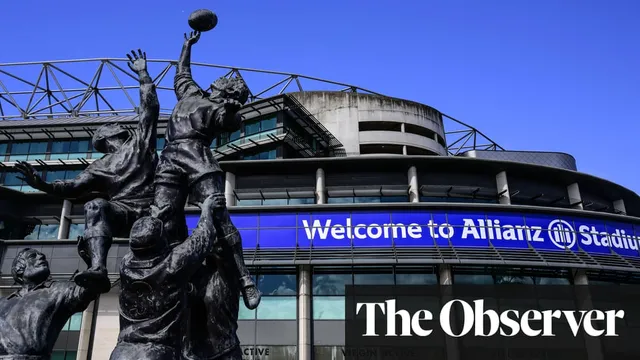
RFU considers moving England matches to Birmingham for better access
2024-09-07 23:56- The RFU considered relocating England's rugby matches to Birmingham for better access, evaluating a new stadium in the Midlands.
- Despite the potential advantages, the RFU decided to stay at Twickenham, which has been the home of English rugby since 1909 and generates significant revenue.
- The decision reflects the RFU's commitment to tradition while also planning for a £663 million redevelopment of Twickenham, with work expected to start in 2027.
Express your sentiment!
Insights
The Rugby Football Union (RFU) explored the possibility of relocating England's rugby matches to Birmingham, considering a new stadium in the Midlands for better accessibility. This review was prompted by the challenges faced by supporters traveling to Twickenham, which has been the home of English rugby since 1909. Chief Executive Bill Sweeney acknowledged that the current location in south-west London often requires fans from the north to spend additional nights in hotels, impacting attendance and overall experience. Despite the potential benefits of a Midlands location, the RFU ultimately decided to remain at Twickenham, which generates approximately 85% of its revenue from match days. The decision was influenced by the financial implications of moving, as well as the historical significance of Twickenham as the traditional home of rugby in England. The RFU is also pursuing a redevelopment plan for the stadium, with an estimated cost of £663 million, although immediate funding for such extensive renovations is currently unavailable. In a bid to enhance revenue, the RFU has signed a naming rights deal with Allianz, officially renaming Twickenham to Allianz Stadium. This partnership is part of a broader strategy to leverage the hospitality market in London and attract non-sporting events, similar to successful venues like Wembley and Tottenham Hotspur Stadium. Sweeney emphasized the importance of flexibility from local authorities to host various events, which could significantly contribute to the stadium's financial sustainability. While the RFU has set a timeline for stadium work to commence in 2027, the focus remains on maximizing current operations and exploring all avenues for revenue generation in the interim. The discussions around moving to Birmingham highlight the ongoing challenges faced by the RFU in balancing tradition with the need for modernization and accessibility for fans across the country.
Contexts
The Rugby Football Union (RFU) is considering relocating England's matches to Birmingham to improve accessibility for fans, aiming to enhance attendance and engagement with the national team. This decision comes amid a broader strategy to revitalize interest in England's national teams, particularly in light of recent managerial changes. Lee Carsley has recently taken over as the interim manager of the England national football team, preparing for his first match against the Republic of Ireland. His approach involves blending experienced players with new talent, which may influence fan interest and attendance at matches. The England Under 21s faced a disappointing draw against Northern Ireland, jeopardizing their hopes for automatic qualification for the European Championship. Such results can impact overall enthusiasm for England's football, potentially affecting attendance at future matches. In rugby, the England team, led by captain Marlie Packer, is preparing for tough matches against France and New Zealand, following a rigorous pre-season training regimen. These developments in both football and rugby reflect the RFU's efforts to engage fans and improve performances on the pitch.